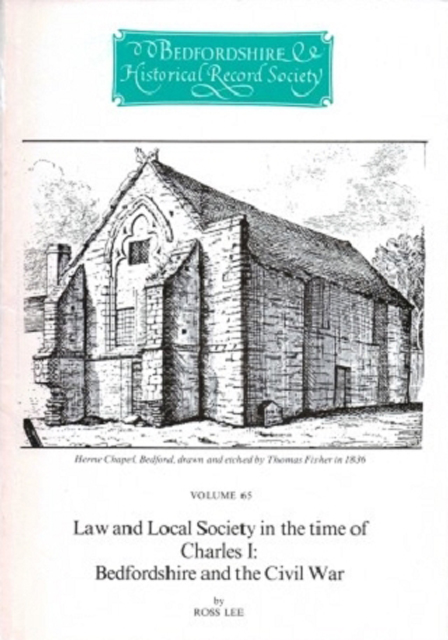I - Bedfordshire Before The Civil War
Published online by Cambridge University Press: 03 August 2023
Summary
INTRODUCTION
‘Four yeers omitted by reason of the civill warre in the nation, which also occasioned civill warre in this parish between the parson and parishioners untill Alexander Nesbett was Inducted rector heerof Feb: anno 1646.’ Parish register ofTingrith, Beds.
The last twenty years have seen exciting developments in historical writing on the seventeenth century. That period in which the Civil War was a dominant event retains an enduring interest; it is live, vibrant, controversial. In recent years major works of scholarship have been produced which have modified the received interpretation of these years, and have demonstrated the continuing vitality of its historiography. What were the causes of the war? What was its impact on society? How enduring were the changes it brought about? These are some of the questions that still remain fresh.
As recent historians have reviewed these and other questions, local studies have played an important part in providing the evidence for reinterpretation. It was the famous ‘storm over the gentry’ of the 1950s that demonstrated the need for detailed local case-studies to test general hypotheses. Professor Everitt’s work on Kent was something of a milestone; the first of a new school of county studies which continues to flourish twenty years later. His concept of the ‘county community’, founded on study of the localities, has proved very influential as an approach to the national history of the mid-seventeenth century. Of course the concept has been refined, modified, criticised: what has survived is the judgement that local history is not just an illustration of central policies in action, nor yet an antiquarian study in which national history can be ignored. The relationship was two-way and dynamic, as the works of Dr Morrill, or Professors Holmes, Underdown and Ashton demonstrate well.
Many county studies have been published in the last twenty years, and more remain unpublished in the form of research theses. Bedfordshire now remains one of the few English counties which has not received attention within the framework of the last two decades’ scholarship. Its comparative dearth of records may be the cause of this.
Yet despite this drawback the attempt is worth making. It has not been done before.
- Type
- Chapter
- Information
- Law and Local Society in the Time of Charles IBedfordshire and the Civil War, pp. 7 - 56Publisher: Boydell & BrewerFirst published in: 2023

